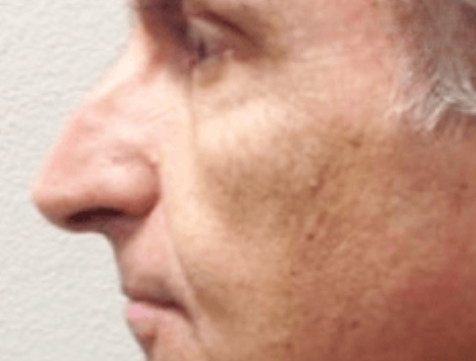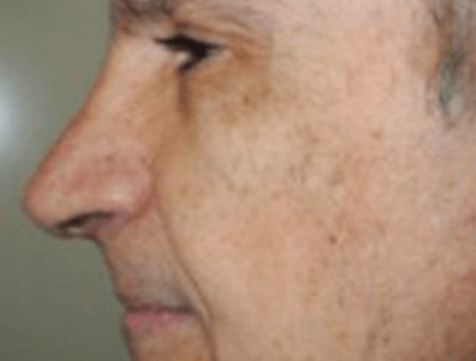Breast reduction surgery, also known as reduction mammaplasty, is a transformative procedure that can alleviate physical discomfort and improve the quality of life for many women. However, like any surgical intervention, it’s natural to wonder about the long-term outcomes and potential for breast tissue to regrow. In this comprehensive guide, we’ll explore the factors influencing breast regrowth, address common concerns, and provide expert insights from Dr. Amy Bandy.
Contents
- 1 Understanding Breast Reduction Surgery
- 2 Factors Influencing Breast Regrowth
- 3 Can Breasts Truly Grow Back After Reduction Surgery?
- 4 Maintaining Results for the Long Term
- 5 Expert Insights from Dr. Amy Bandy
- 6 Call Dr. Amy Bandy Today!
- 7 FAQs
- 7.1 How long do the results of breast reduction surgery last?
- 7.2 Will I still be able to breastfeed after a breast reduction?
- 7.3 Is breast reduction surgery covered by insurance?
- 7.4 What are the potential risks and complications associated with breast reduction surgery?
- 7.5 Can breast reduction surgery improve back pain and other physical symptoms?
Understanding Breast Reduction Surgery
Breast reduction surgery involves removing excess breast tissue, fat, and skin to achieve a more proportionate breast size and shape. This procedure not only reduces the physical burden of large breasts but also enhances self-confidence and body image. During the surgery, the surgeon carefully reshapes the breasts and repositions the nipples to create a more aesthetically pleasing appearance.
Factors Influencing Breast Regrowth
While breast reduction surgery can deliver long-lasting results, several factors may influence the potential for breast tissue to regrow:
- Genetics: Genetic predisposition plays a significant role in determining breast size and shape. While surgery can effectively reduce breast volume, genetic factors may contribute to the potential for regrowth over time.
- Weight Fluctuations: Significant changes in weight can impact breast size and may affect the longevity of surgical results. Patients are advised to maintain a stable weight following surgery to minimize the risk of breast regrowth.
- Hormonal Changes: Hormonal fluctuations, such as those experienced during pregnancy, breastfeeding, or menopause, can influence breast tissue. While uncommon, hormonal shifts may contribute to changes in breast size and shape post-surgery.
Can Breasts Truly Grow Back After Reduction Surgery?
The likelihood of significant breast regrowth following reduction of mammaplasty is relatively low. However, it’s essential to recognize that breasts are dynamic structures influenced by various factors, including genetics, hormonal changes, and lifestyle habits. While some patients may experience minimal regrowth over time, particularly with weight gain or hormonal fluctuations, the overall reduction achieved through surgery is typically long-lasting.
Maintaining Results for the Long Term
To optimize and prolong the results of breast reduction surgery, patients are encouraged to:
- Follow Post-Operative Guidelines: Adherence to post-operative instructions provided by your plastic surgeon is crucial for proper healing and optimal outcomes. This may include wearing compression garments, avoiding strenuous activities, and attending follow-up appointments.
- Maintain a Healthy Lifestyle: A balanced diet, regular exercise, and adequate hydration are essential for overall health and well-being. Maintaining a stable weight can help preserve the results of breast reduction surgery and minimize the risk of regrowth.
- Regular Monitoring: Regular follow-up appointments with your plastic surgeon allow for ongoing assessment of your surgical outcomes and any potential changes in breast size or shape. Monitoring your breast health is essential for early detection of any issues or concerns.
Expert Insights from Dr. Amy Bandy
Dr. Amy Bandy, a board-certified plastic surgeon with extensive experience in breast reduction surgery, emphasizes the importance of personalized care and patient education. With her compassionate approach and dedication to achieving natural-looking results, Dr. Bandy guides patients through every step of the surgical journey, from initial consultation to post-operative care.
Call Dr. Amy Bandy Today!
Ready to learn more about breast reduction surgery and how it can transform your life? Schedule a consultation with Dr. Amy Bandy, by calling 949-779-8714 today. Take the first step towards a more comfortable and confident you.
FAQs
How long do the results of breast reduction surgery last?
The results of breast reduction surgery are intended to be long-lasting, providing relief from physical discomfort and enhancing quality of life. While individual experiences may vary, many patients enjoy the benefits of their surgery for years to come. It’s essential to maintain a stable weight and follow your surgeon’s recommendations for post-operative care to optimize and prolong your results.
Will I still be able to breastfeed after a breast reduction?
Breast reduction surgery can impact the ability to breastfeed, as the procedure involves removing glandular tissue and reshaping the breasts. While some women may still produce milk and breastfeed following surgery, others may experience difficulty or inability to do so. If breastfeeding is a priority for you, it’s essential to discuss your concerns with your plastic surgeon during the consultation process.
Is breast reduction surgery covered by insurance?
In many cases, breast reduction surgery may be covered by insurance if it is deemed medically necessary to alleviate symptoms such as chronic back, neck, or shoulder pain, as well as skin irritation or other physical discomfort associated with large breasts. However, coverage varies depending on your insurance provider and individual policy. Our office can assist you in navigating the insurance approval process and determining your eligibility for coverage.
What are the potential risks and complications associated with breast reduction surgery?
Like any surgical procedure, breast reduction surgery carries certain risks and possible complications. These may include anesthesia risks, bleeding, infection, changes in nipple sensation, asymmetry, scarring, and the need for additional surgeries. During your consultation, Dr. Bandy will discuss these risks in detail and provide personalized recommendations to minimize potential complications.
Can breast reduction surgery improve back pain and other physical symptoms?
Yes, breast reduction surgery is often effective in relieving physical symptoms associated with large breasts, including chronic back, neck, and shoulder pain, as well as skin irritation and posture issues. By reducing the weight and volume of the breasts, the procedure can alleviate strain on the upper body and improve overall comfort and mobility. Many patients experience significant improvement in their quality of life following breast reduction surgery.













